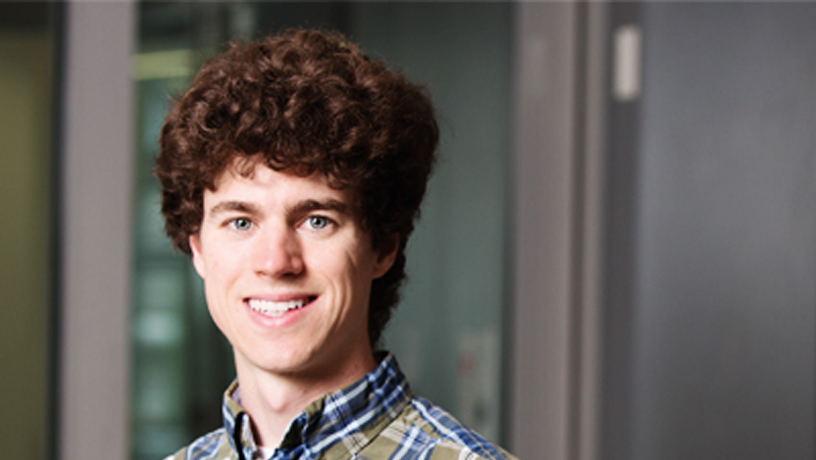Riley Spahn, Computer Science, PhD Student
Riley Spahn approaches his research in computer science with a key tenet of engineering in mind: the importance of building—namely, creating foundations for future research within his field of study. “It is important to build tools that serve as building blocks so more people can study data and security,” he says. Currently a PhD student, Spahn is focused on the increasingly critical field of privacy.
Spahn obtained his undergraduate degree from Auburn University, where he initially set out to study chemical engineering but quickly changed his mind after one computing class. He was partly drawn to SEAS because of the work of Assistant Professor Roxana Geambasu. “She had a history of doing exciting and novel systems and privacy research,” he remarks.
Spahn joined Columbia with Geambasu as a faculty adviser and has wasted no time in contributing to her exciting research. In his work with her and Professor Gail Kaiser, he builds different transparency tools to help users learn how applications services use their data, as well as tools for programmers to manage data in a transparent, responsible way. Their work couldn’t be timelier, as the fears over digital privacy continue to bubble, an issue of which Spahn is of course cognizant: “With large-scale data collection comes the potential for drastic abuse and discrimination. I think that it’s going to be very important for us to develop practical techniques for handling personal data.”
Practicality and responsibility seem to be an innate part of Spahn’s focus and doubtlessly inform his efforts. “I’ve built a modified version of the Android operating system, called Pebbles, that tracks related data and can expose that to users, allowing them to see how applications are managing their data,” he says.
And his efforts have not gone unnoticed. Recently he was one of just fifteen students to receive a North American Google PhD Fellowship for his work. With the bigger picture in mind, Spahn grasps the significance of the honor.
“I’m very happy that my research is receiving recognition, and I think that our research group brings a useful systems point of view to privacy work,” he says. “In addition to my own research, I think that it’s equally important for privacy in general to receive recognition, attention, and funding.”
As for what he’ll ultimately do professionally, Spahn feels a pull into academia but is characteristically practical in pacing his decision, remarking, “I’m far enough out from graduation that I don’t have any solid plans.”
Though he’s open minded about his own career, he possesses a powerful enthusiasm for the future of the field: “I think there are a lot of exciting opportunities to take advantage of data to learn about larger trends within our society, such as in medicine. One example is Google’s effort to track flu trends across the country. We could use such large-scale data to inform policy makers and help direct research direction.”
Spahn is already making important contributions to his field, and it’s obvious that his professional future, whatever it may entail, is bright.

(Photo by Jeffrey Schifman)
